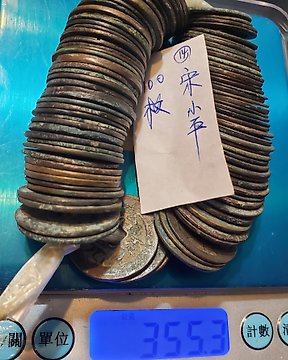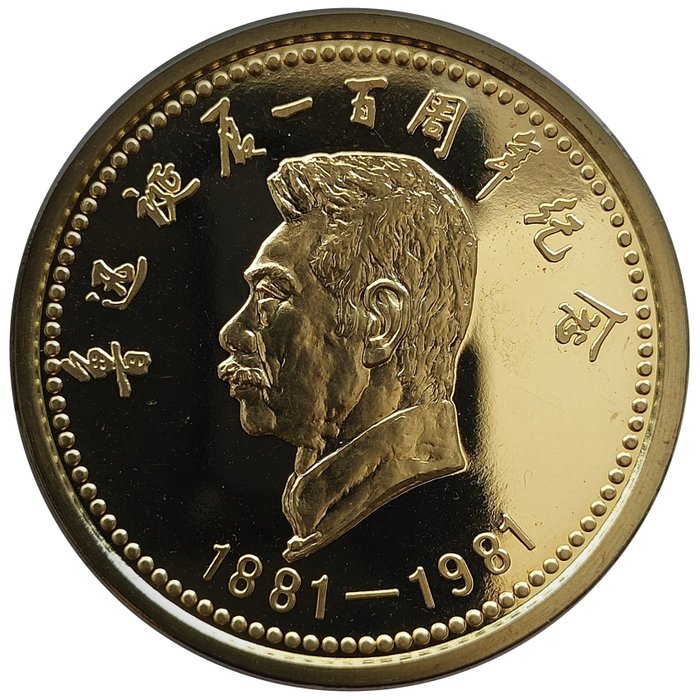
China. 100×]ND Song dynasty various mint (355g)
Nr. 82053611

Nr. 82053611

Lu Xun 100th Anniversary of Birth
The writer of Village Opera was born in Shaoxing city, Zhejiang Province, China, in 1881. It was during the closing years of imperial rule, the Guangxu Reign (1875-1908) of the Qing Dynasty. His parents named him Zhou Shuren; the pen name Lu Xun came decades later. Several medals mark this birth year. For instance, there are both silver and brass versions of this 40-millimeter-diameter design. They were struck at the Shanghai Mint in 1981 for the 100th anniversary of Lu Xun’s birth. The brass medal’s mintage is recorded as 2,000.
Zhou Shuren (25 September 1881 – 19 October 1936), better known by his pen name Lu Xun (or Lu Hsun; Chinese: 鲁迅; pinyin: Lǔxùn; Wade–Giles: Lu Hsün, LOO-shoon), was a Chinese writer, literary critic, lecturer, and state servant. He was a leading figure of modern Chinese literature. Writing in vernacular Chinese and classical Chinese, he was a short story writer, editor, translator, literary critic, essayist, poet, and designer. In the 1930s, he became the titular head of the League of Left-Wing Writers in Shanghai during republican-era China (1912–1949).
Lu Xun was born into a family of landlords and government officials in Shaoxing, Zhejiang; the family's financial resources declined over the course of his youth. Lu aspired to take the imperial examinations, but due to his family's relative poverty he was forced to attend government-funded schools teaching ""foreign education"". Upon graduation, Lu went to medical school in Japan but later dropped out. He became interested in studying literature but was eventually forced to return to China because of his family's lack of funds. After returning to China, Lu worked for several years teaching at local secondary schools and colleges before finally finding an office at the Republic of China Ministry of Education.
After the 1919 May Fourth Movement, Lu Xun's writing began to exert a substantial influence on Chinese literature and popular culture. Like many leaders of the May Fourth Movement, he was primarily a leftist. He was highly acclaimed by the Chinese government after 1949, when the People's Republic of China was founded, and Mao Zedong himself was a life-long admirer of Lu Xun's writing. Though sympathetic to socialist ideals, Lu Xun never joined the Chinese Communist Party.
Actual dimensions:
diameter: 40 mm,
thickness: mm,
weigth: 27.82 gram.
View the photos for a good impression. Lu xun's additional photos are not part of the delivery.
Cum să cumperi de la Catawiki
1. Descoperă ceva special
2. Plasează cea mai mare ofertă
3. Fă o plată sigură